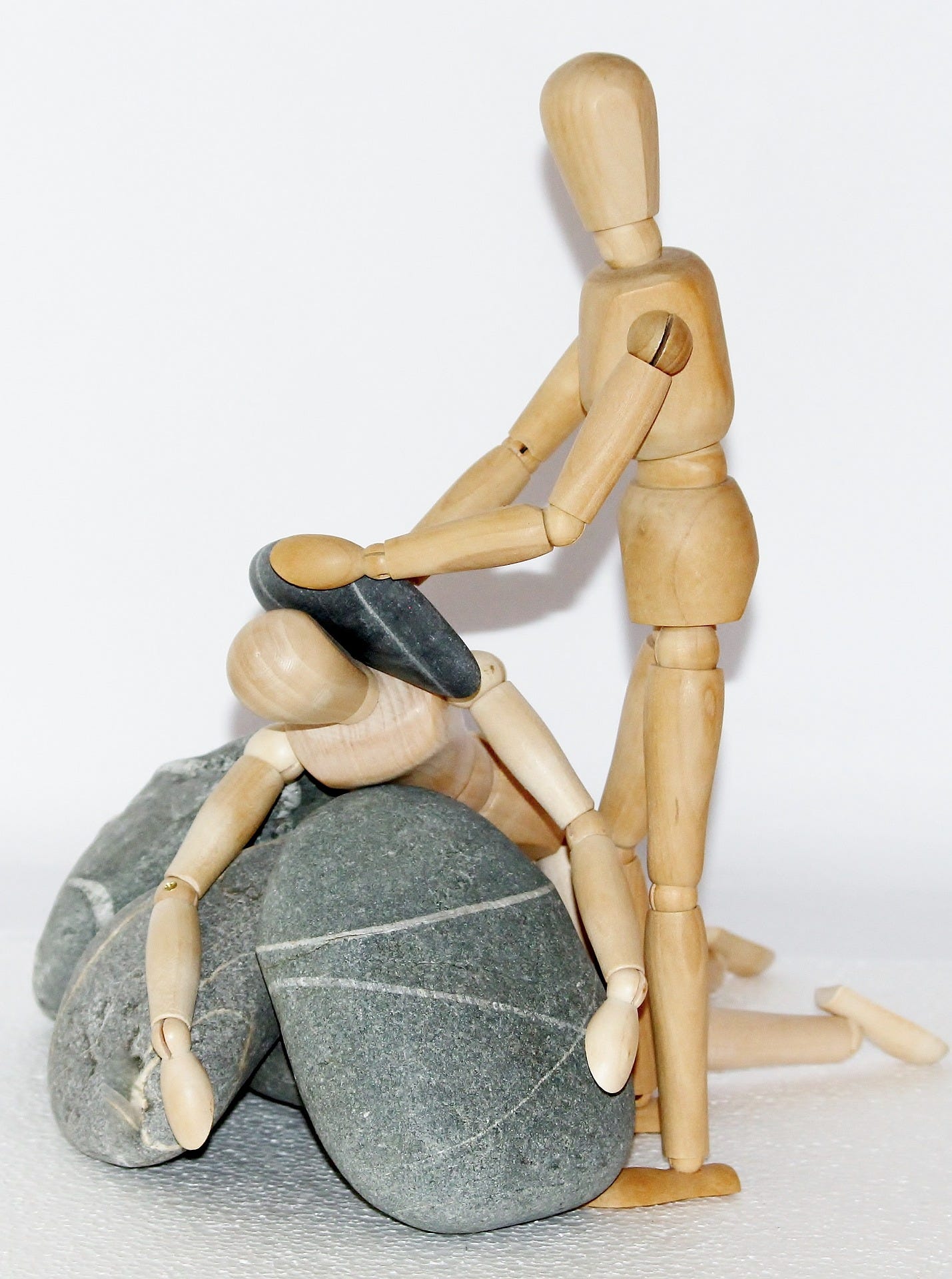Stories for Resilience
Innovation requires grit; here's how to get it
The innovation process can feel like a rollercoaster of emotions. One day you can be on a creative high. You just solved world hunger, the climate crisis AND racism, all in your head. You think “this is going to work” and everyone is going to be happy. The next day, one of those “assumptions” doesn’t pan out, the gleaming white tower you built starts falling apart, and you may feel like a failure, or even worse, a fraud.
Life is a long list of failures. And the path to innovation is strewn with obstacles, potholes, roadblocks, and sometimes even giant alien tanks pointing laser death rays at your face. Simply put, it can be tough. The true path to success is how you react to the setbacks, how you can accept the pain of defeat and manage to keep pushing, keep moving towards the dim star of success up ahead.
The key to resilience lies in stories.
It can be easy to take a setback and build a negative story around it, specifically one about your own inadequacy. The narrative often take the shape of "I can never do anything right" and its many cousins. These stories are called "cognitive distortions," and they can lead to some major bummers like negative emotions and unhelpful behaviors. Don’t just take my word for it, reframing the story is a key part of CBT or Cognitive Behavioral Therapy, quite possibly the most popular form of counseling used today.
So here are some quick “reframes” specifically designed to help innovators like you stay positive and keep motivated through the ups and downs of life:
Rejection or Criticism
Background: You just pitched your idea to a friend or colleague, an impassioned plea to change the world, and the response was… meh.
Negative story: The world just doesn’t get it. Everyone has blinders on and won’t see the truth. It’s hopeless, and I won’t ever be able to create change like I dream of.
Positive reframe: People need time to fully absorb and understand groundbreaking ideas. Part of my job is to patiently and delicately help bring society to that new progressive future. I learned that I need to try a different angle or go slower on my next try.
Failed Test
Background: Your first prototype of your brilliant idea has finally hit some testers, and it fails… completely, and utterly, fails.
Negative story: This was a horrible idea. I can’t believe I wasted all that time on this horrible idea. I’m a failure just like my idea.
Positive reframe: Good thing I tested this early. I gained some valuable insights that will bring me closer to the right product idea. My next idea will be much closer, and eventually I’ll hit upon the right direction.
Failed Product
Background: You devoted years into a product that finally hits the market, and… it fails. Or at least it doesn’t succeed, and these days, isn’t that the same thing?
Negative story: I wasted years on this product, not just of my life but that of the whole team. I sold everyone on a lie, and now I’ve let everyone down. We’re the laughing stock of the industry and we’ll never live it down.
Positive reframe: Very few products succeed, and like it or not, luck and timing plays a bigger role than we like to admit. I’m not alone in this. The whole team bears equal responsibility, and to be honest, we had tons of fun and learned a lot doing this. Now that we’ve been forged by fire, we can work together on the next great idea. Most startup founders succeed on their third or fourth try!
Slow Progress
Background: Your six month project now looks like it’ll be 18 months.
Negative story: I was supposed to have succeeded by now. I must be doing something wrong. Is something wrong with this idea?
Positive reframe: Invention is 95% perspiration and 5% inspiration. Now is the time to show my grit. This will force me to really hone in on the value proposition. What can I remove from scope to make this a better, more focused product?
Uncertainty and Ambiguity
Background: Changes in the company, the industry or the world make it hard to predict the future. Like, maybe a pandemic happened.
Negative story: I don’t know what to do. What if everything collapses and I have no money, no future. How can I plan?
Positive reframe: In any period, not matter good or bad, there are winners and losers. I can be a winner if I keep my head and look for opportunities in the changing world. I can execute on short term goals and be ready to move quickly when the moment arrives to pivot.
No resources
Background: You’ve pitched your idea and people say they love it. But there’s no money in the company or there’s no investors lining up to fund you.
Negative story: I’m a failure. I can’t even get started. Investors threw hundreds of millions into Webvan, and I can’t get a dime. What’s wrong with me? Maybe people are just being nice and actually think my idea is crap.
Positive reframe: Getting funding is not just about the idea, it’s also about the timing and the market. I’m learning more about what the investors need right now (e.g. saving money), and that will allow me to tweak my idea and the story to match (e.g. my idea saves money). It may take a while, but I’m learning along the way and becoming a better innovator every day.
Burnout
Background: Everything listed above has happened to you. Positive reframes seem like bogus at this point.
Negative story: I can’t deal with this anymore. I give up. I know I suck. Innovation sucks. Positive reframes suck. This article sucks. Life just sucks in general. What’s the point in all this?
Positive reframe: Everyone deserves a break, including myself. I’m allowed to get angry and frustrated. I’m allowed to rest for a bit. It doesn’t mean that I’ll jump back in the fray later, and it doesn’t mean I won’t. I’m joining the millions of others who have experienced burnout. Isn’t that a new experience that I can learn from too? I wonder what I can invent to help people with burnout…




